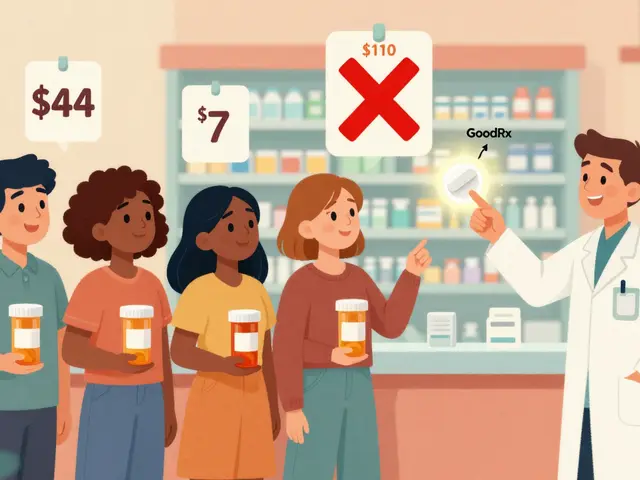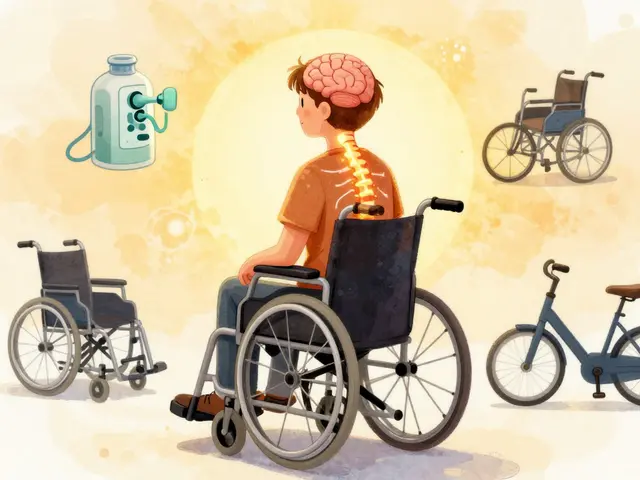Galantamine — what it does, how to use it safely
Galantamine is a prescription medicine most often used for mild to moderate Alzheimer’s disease. It won’t cure dementia, but it can improve memory, attention and daily function for some people. If you or a loved one are starting galantamine, this page gives straightforward, practical info you can use when talking with a doctor or caregiver.
How galantamine works and when it’s used
Galantamine boosts the brain chemical acetylcholine by blocking the enzyme that breaks it down and by helping acetylcholine receptors work better. That double action can help brain cells communicate more clearly, which can translate to better memory and thinking in some patients.
Doctors usually prescribe it for mild to moderate Alzheimer’s disease. Expect gradual changes: some people notice clearer thinking or easier daily functioning within weeks to months, while others see little change. It’s a symptomatic treatment — not a cure.
Dosage, side effects and safety tips
There are immediate‑release and extended‑release forms. A typical approach is to start low and raise the dose slowly to limit nausea and dizziness. Take galantamine with food to reduce stomach upset. Follow your prescriber’s exact schedule — don’t change the dose on your own.
Common side effects include nausea, vomiting, diarrhea, decreased appetite, weight loss, dizziness and headaches. These often improve after the first few weeks or after a dose adjustment. Less common but important issues are slow heart rate (bradycardia), fainting, breathing difficulties and severe stomach bleeding. If you notice fainting, slow pulse, black stools, or worsening breathing, contact a clinician right away.
Drug interactions matter. Galantamine is affected by some medicines that change liver enzymes, and it may interact with strong anticholinergic drugs (which work the opposite way) or with other cholinergic agents. Tell your doctor about all prescriptions, over‑the‑counter drugs and supplements you use.
Special situations: if you have asthma, COPD, heart rhythm problems, history of ulcers, or seizures, discuss risks with your prescriber. People with kidney or liver impairment may need dose changes. Pregnant or breastfeeding women should check with a clinician before using galantamine.
Practical tips for caregivers: keep a simple symptom log — sleep, appetite, confusion episodes, falls and new side effects. Share that with the clinician at follow‑ups. If nausea is the main issue, taking the drug with meals or splitting doses (only as prescribed) can help. Never stop suddenly without medical advice; gradual changes are safer.
Questions to ask your doctor: What dose should we start with and when will we increase it? What signs mean the drug helps? Which side effects should trigger a call or ER visit? Will this interact with my other meds? Clear answers make decisions easier.
If you want more depth or links to specific studies and patient resources, check credible medical sites or ask your healthcare team. Use this page as a quick, practical overview to help you talk to your doctor with confidence.
4
Reminyl: How Galantamine Is Changing Dementia Treatment in 2025
Reminyl (galantamine) is making waves in dementia care. This deep dive covers how it works, who it's for, side effects, and practical tips to help you or loved ones.
Latest Posts
Popular Posts
-
 Out-of-Pocket Costs: How Generics Cut Your Drug Bills - and When They Still Hurt
Out-of-Pocket Costs: How Generics Cut Your Drug Bills - and When They Still Hurt
-
 Duloxetine and Liver Health: What You Need to Know About Hepatotoxicity Risk
Duloxetine and Liver Health: What You Need to Know About Hepatotoxicity Risk
-
 Celiac Disease: Gluten-Free Living and Nutrient Supplementation
Celiac Disease: Gluten-Free Living and Nutrient Supplementation
-
 Spinal Cord Injury: Understanding Function Loss, Rehabilitation, and Assistive Devices
Spinal Cord Injury: Understanding Function Loss, Rehabilitation, and Assistive Devices
-
 Extended Use Dates: How the FDA Extends Drug Expiration Dates During Shortages
Extended Use Dates: How the FDA Extends Drug Expiration Dates During Shortages



